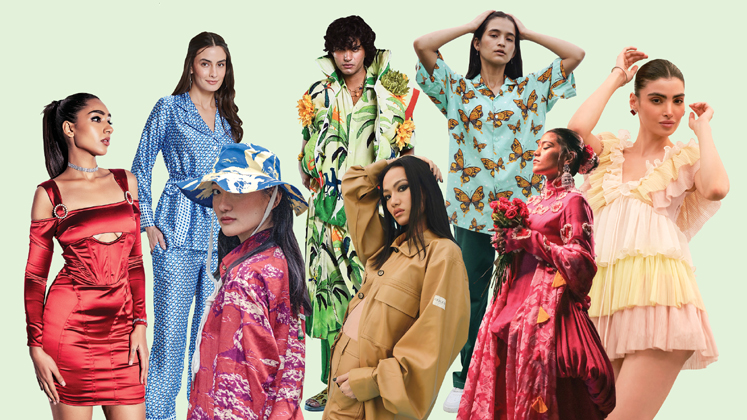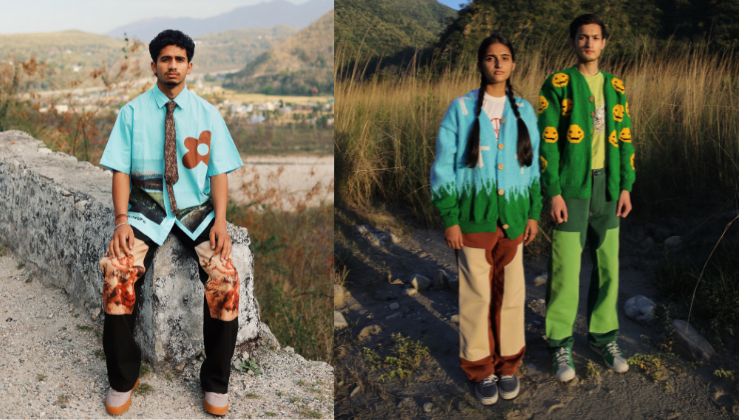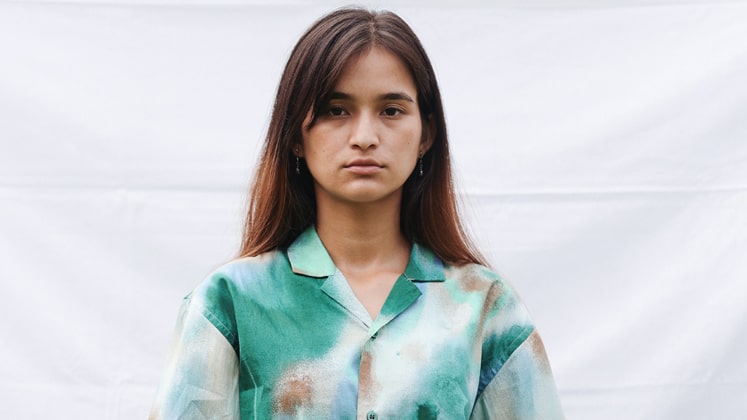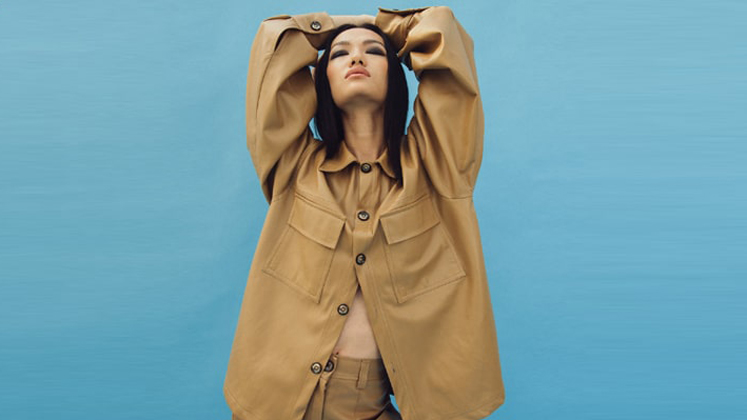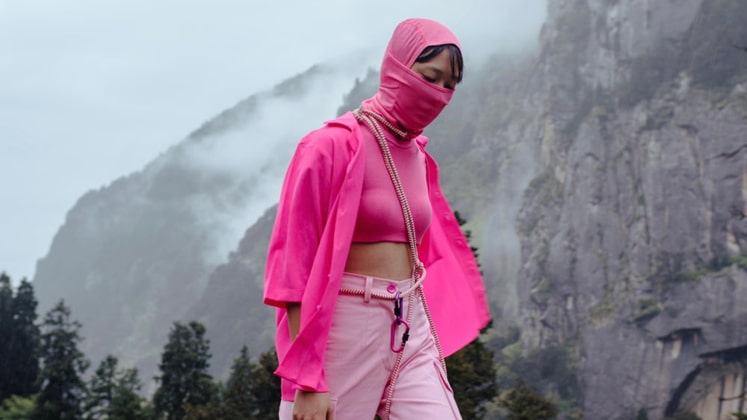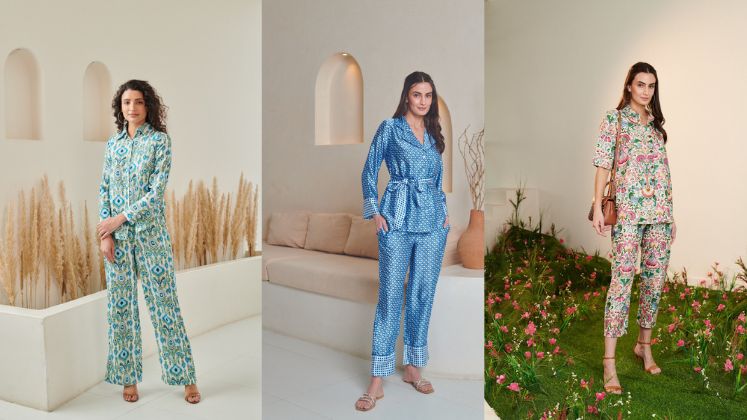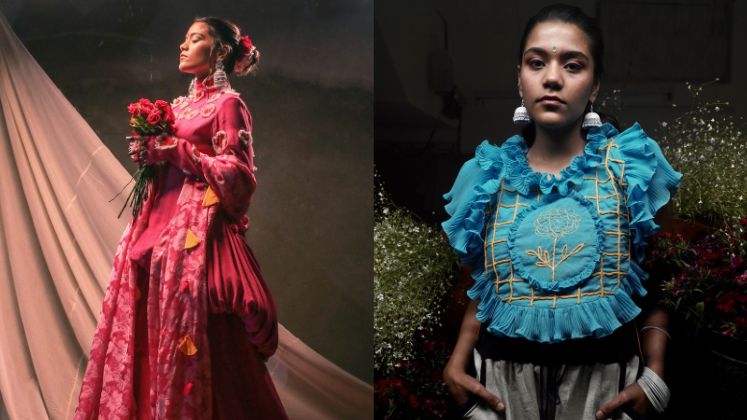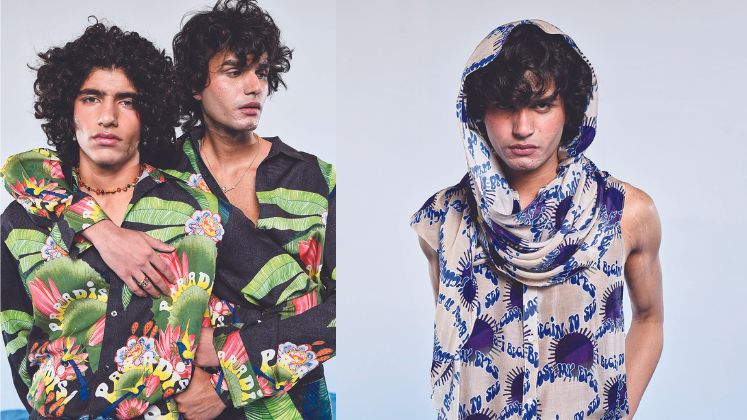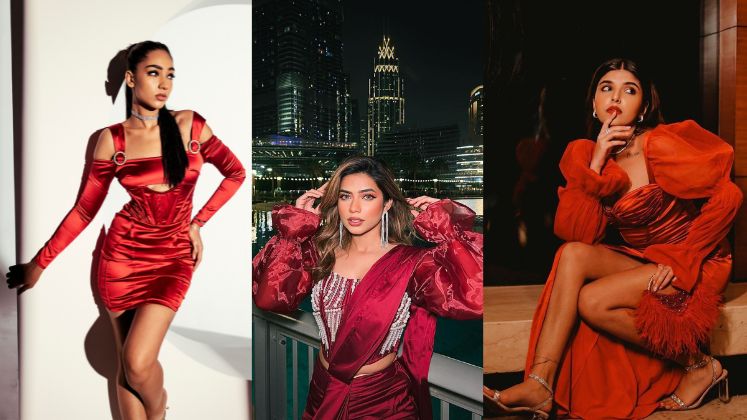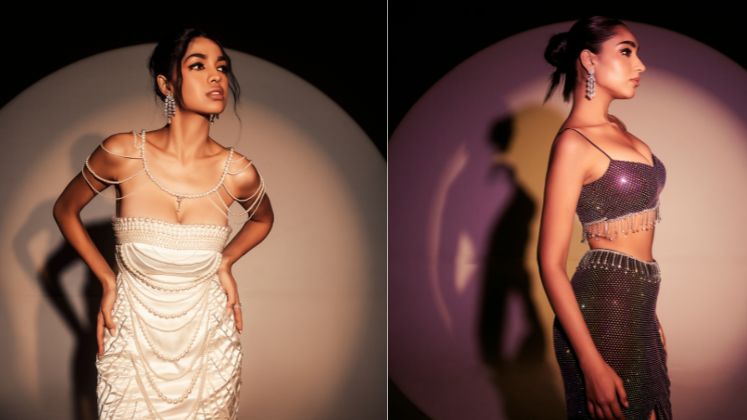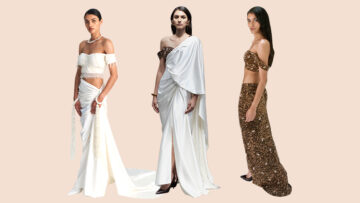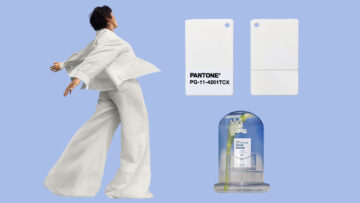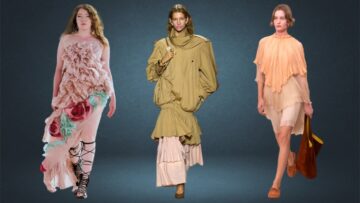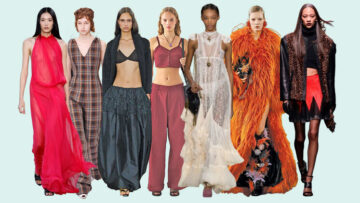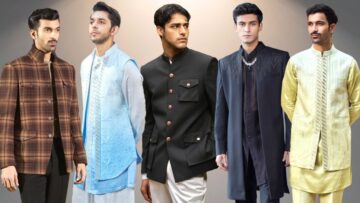In the realm of fashion, one brand stands out from the other for its commitment to sustainability, inclusivity and affordability while upholding the principles of design. India’s fashion landscape is witnessing a remarkable rise in homegrown labels and brands that embrace design, art and size inclusivity while staying true to their roots. These emerging players are breaking traditional molds and redefining the notion of fashion and style.
With a keen focus on craftsmanship and innovation, these brands celebrate diversity and cater to a wide range of body types and sizes. They prioritise creating inclusive spaces where everyone feels represented and empowered.
From their attention to detail to their storytelling through fashionable pieces, they have created a brand that celebrates diversity and self-expression. With a strong emphasis on fabric selection, they source materials from trusted suppliers known for their quality standards.
But their vision extends beyond just creating trendy clothing; they are dedicated to making a positive impact on the industry.
By introducing more affordable collections and incorporating sustainable practices throughout their supply chain, this new crop of designers and labels strives to make fashion a force for positive change while staying true to their core values of social responsibility. This is the story of a few such Indian brands that are embracing creativity, authenticity and a deep sense of purpose in the world of fashion.
Read on to discover.
GENDER-NEUTRAL / UNISEX
No longer confined to restrictive gender expectations, some of the trendy labels listed below are producing inclusive designs empowering individuals to express their unique identities and choose comfortable clothing regardless of gender-biased fashion.
1 HOS
Streetwear brand HOS is renowned for its dedication to embracing individuality and ensuring comfort without sacrificing style. With meticulous attention to detail, it weaves captivating narratives through its fashion-forward pieces.
The brand’s affordability sets it apart, making it accessible to a wide range of customers.
HOS employs a wide range of techniques, including traditional hand knitting and cutting-edge DTG printing, with which it skillfully blends hand and machine embroidery to create intricate designs. Each garment showcases its commitment to artistic craftsmanship and innovative approaches to fashion.
The brand strives to cater to young individuals between the age group of 18 to 34 who have an appreciation for art and fashion. Its products are designed to be unisex and appeal to both males and females with a prime focus on the metropolitan and Tier-1/Tier-2 cities.
Materials and fabrics
The brand incorporates a range of fabrics including raw denim, washed denim, cotton and corduroy. Its materials are carefully sourced from fabric hubs in Delhi such as Nehru Place and Chandini Chowk, ensuring quality and durability. With a commitment to sustainability, the brand is planning to transition to bio-based materials, aiming to reduce its carbon footprint and promote eco-friendly practices.
“We value both design and fit equally at our brand. To achieve a comfortable and flattering fit for all body types, we use high-quality denim and cotton fabrics that are carefully selected for their durability and breathability. Our products are thoughtfully crafted with an oversized and relaxed fit, allowing for ease of movement and comfort. Our aim is to create pieces that meet both aesthetic and functional expectations,” Manish Kumar, Director at HOS said.
What sets it apart
“Our brand values the essence of providing quality products at an affordable price without compromising the experience. We understand that not everyone has the privilege of investing in luxury brands but it does not mean that quality should be sacrificed. We aim to be the go-to brand for individuals who value quality without the need to break the bank,” Manish stated.
2 Claraché
Claraché distinguishes itself through its vibrant colours, which serve as the primary source of inspiration. The brand also plays around with hand embroidery on its unisex garments, contributing to the overall branding of the pieces.
The target market of Claraché encompasses individuals aged 18-34, with the majority of its offerings being unisex or womenswear. While 90 per cent of its sales occur in India, the brand also caters to a global audience, with 10 per cent of its sales originating from international customers.
Claraché’s online portal, www.clarache.in, features eight categories of products, including pantsuits (separates or sets), skirts, shorts, coats, jackets, trousers, bags and hats that are priced between Rs.3000 to Rs.18,000. The brand plans to introduce additional categories to its online platform in the near future.
Materials and fabrics
Claraché combines outsourced materials with those created in-house. The brand extensively employs fabric printing and hand embroidery techniques, resulting in a blend of both outsourced and self-produced fabrics.
Notably, Claraché has gained significant recognition for its vegan leather jackets, trench coats and other vegan leather garments.
The fabric range utilised by Claraché encompasses various materials such as vegan leather, faux fur, faux leather, cotton canvas, georgettes and cotton. The brand predominantly offers oversized sizes, but it also accommodates customisations by personally obtaining the measurements of clients to ensure a perfect fit.
“The fabric range that we use varies from vegan leather, faux fur, faux leather, cotton canvas to georgettes and cotton. The sizes that we keep are mostly oversized and if someone wishes to customise them, we personally ask them for their sizes to ensure a nice fit on our clients,” the brand stated in an exclusive interview with Apparel Resources (AR).
What sets it apart
Unassuming at its core, Claraché’s philosophy is rooted in creating timeless pieces of clothing through an aesthetic that is uniquely its own. Every collection that it launches, showcases the importance of trans-seasonality and since it chooses to go for pop colours which might not suit everyone, the brand tries to achieve ease and simplicity in its silhouettes which makes the brand’s pieces extremely comfortable, wearable and functional at the same time.
As per the brand, “Most of our looks are either monotone or we use shades of the same colour to achieve one particular look but overall the collection always depicts a strong pop-coloured palette. Our designs strive to elevate classic silhouettes to the taste of an ever-evolving ‘now’ making the pieces simple yet powerful. That sets our brand apart from other wonderful brands out there.”
3 Two Point Two
The brand embraces the tagline ‘agender is the new gender’ as it seeks to establish a third identity that goes beyond traditional gender binaries. The garments showcase exquisite raw threadwork and embroidery, meticulously crafted from fabric waste generated during the production process, emphasising its commitment to sustainability.
4 BISKIT
A unisex concept label that explores the intersection between design and art. The brand, which was launched in Brooklyn, New York in 2017, now operates out of Chennai, India.
5 BOBO Calcutta
BOBO Calcutta blurs the line between fashion and art, showcasing vibrant, psychedelic palettes. The signature motif of an androgynous lip-locked split face adds a unique touch. Embrace bold, colourful silhouettes that make a statement.
6 Almost Gods
Based in New Delhi, ALMOST GODS merges streetwear and art, infusing Indian roots with an urban aesthetic. Expect innovative designs that blend tradition and modernity, featuring refined cuts, functionality and the perfect balance between old and new in each garment.
SLEEP AND LOUNGEWEAR
Once considered as boring, sleep and loungewear has become a hit in recent years as it is turning into a popular choice for people who want to look and feel their best even when they are unwinding at home. The labels, dealing in this category, create cozy and stylish clothes specifically for sleeping and relaxing.
7 DUSK ATTIRE
“We offer a fresh take on sleepwear. Instead of simple and boring old nightwear, we at Dusk focus on the concept of Sleep to Street. The pieces are made keeping versatility in mind along with comfort. We want our customers to not only sleep comfortably in our outfits, but also be able to wear the same outfit out for lunch or coffee,” Karam Suri, Founder of Dusk Attire, told AR.
Dusk Attire primarily targets women between the age group of 22 and 50, specifically catering to fashion-conscious metropolitan women who prioritise both style and comfort. The brand specialises in three main categories: sleepwear, co-ord sets and kaftans.
Materials and fabrics
Dusk Attire primarily utilises satin, cotton and rayon as its main materials. It has established relationships with suppliers for each fabric type and often employs digital printing techniques in its manufacturing process.
The brand places significant emphasis on achieving the perfect fit and continuously incorporates customer feedback to make necessary adjustments. Fabrics such as satin and rayon have proven to be particularly suitable for the brand, as they provide a graceful drape and flatter a wide range of body types.
What sets it apart
The brand’s value lies in its quality and unique creations, continuously innovating with prints and silhouettes. A loyal following is built through the use of soft, rich fabrics and excellent customer service.
8 dandelion
Dandelion is a vibrant and youthful clothing brand that combines comfort and beauty seamlessly. Every garment is meticulously handmade using high-quality cotton, ensuring a comfortable and cozy experience. Whether you’re lounging or starting your day, Dandelion offers clothing that embraces both relaxation and style.
9 NeceSera
The brand aims to bring the comforting feeling of being at home through its collection of butter-soft fabrics and cozy silhouettes. Its versatile clothing is designed to be worn while sleeping, travelling, working and even during work-out.
10 Sweet Slumber
An Indian loungewear label that brings together vivid Jaipuri prints and breezy designs to make lounging, sleeping and doing pretty much anything else look and feel effortless.
11 PRXKHXR
Prxkhxr offers a diverse range of print-focused clothing with slightly oversized fits, appealing to a younger audience that seeks for an easy-going and relaxed look. It prioritises natural fabrics and azo-free dyes for printing, while higher-priced pieces feature hand-embroidered details.
“Our brand’s focus is on catering to individuals between the age group of 19 to 30 years who are well-travelled and have a keen interest in art, fashion and music. Our target audience isn’t limited to just Tier-1 and Tier-2 cities in India, as we strive to reach out to like-minded customers in the US and UK through various social media channels and collaborations with international brands,” Prakhar Chauhan, Founder of Prxkhxr told AR.
The brand offers a diverse range of fashion products in five categories: shirts, T-shirts, outerwear, bottoms and accessories.
Materials and fabrics
“As a fashion brand, we have a conscious approach to fabric selection. We focus on a curated selection of base materials and experiment with various weave structures within that range. Our primary fabric choices include cotton poplin, cotton satin, silk plain weave, cotton-silk blend satin weave and cotton twill,” Prakhar explained.
The brand collaborates with reputable suppliers like Khadi Bhavan in Connaught Place and vendors located in the Nehru Place market in South Delhi to source these fabrics.
Prakhar then stated, “Once we have the fabrics, we send them to our digital printing vendor based in Gurgaon, who handles all our printed fabric needs.”
The brand is eager to delve into exploring alternative resources for silk procurement, such as bamboo and banana, once they have the necessary resources to do so.
According to Prakhar, “At present, our fashion brand specialises in loose and oversized silhouettes, allowing us to cater to a wide range of body types and sizes right from the start. Moreover, as all our garments are made to order, we provide an additional option to our customers to request a custom size and fit at no extra cost.”
What sets it apart
The brand differentiates itself by offering visually captivating and unique products with one-of-a-kind prints and colours. The brand’s ability to provide experimental pieces sets it apart, as it operates on a made-to-order approach, avoiding deadstock and losses. This flexibility allows it to create and deliver innovative designs tailored as per customer preferences, ensuring an adaptable business model.
12 Jaywalking
Jaywalking, a streetwear fashion house, encompasses gender-fluid, men’s and women’s ready-to-wear and custom-made clothing. With a focus on construction, conceptualisation, photography, craftsmanship and collaboration with artisans, Jaywalking has gained recognition for its unique aesthetic. The brand’s style revolves around deconstruction and experimentation with visual elements playing a vital role in its designs, drawing inspiration from the founder’s own paintings.
13 Polite Society
With a focus on innovation and wearability, the brand strives to showcase local talent and craftsmanship in the fashion industry. Embracing a sense of community, its collections and clothing feature denim, corsets and prints, offering an authentic and unfiltered expression of streetwear.
14 Margn
The label prioritises human-centered design, considering both the ergonomics of its products and the conception and production of its collections. By exploring unconventional and informal cultures, Margn reimagines menswear staples for a future-focused humanity.
CONSCIOUS AND ECO-FRIENDLY LABELS
With consumers becoming increasingly passionate about protecting the environment by making informed choices, many labels are pitching in to support this cause. These labels fulfil their commitment to sustainability through their collection of conscious and eco-friendly clothing.
15 URTH LABEL
Urth prioritises top-quality products and adheres to ethical workplace practices. Initially, its focus was on simple and classic silhouettes suitable for all body types, but it has recently shifted towards a more eclectic and modern design approach for its summer collection.
What sets it apart
The brand places great emphasis on utilising high-quality fabrics within its collections that undergo rigorous testing for shrinkage, colour bleeding and skin-friendly comfort, ensuring an optimal wearing experience. Combined with impeccable tailoring, every piece leaving its unit is perfected. It strives to offer competitive prices without compromising on quality, making its products accessible to customers.
“We achieve the above while doing our best to reduce our ecological footprint. We are proudly a zero-waste company and have always been extremely conscious of what falls on the floor. All the fabric scraps that accumulate in the production process are collected and bagged and sent for recycling and this extends to all plastic and stationary waste as well,” Udai Arora, Founder and CEO of Urth, told AR.
Urth offers a wide range of products including dresses, tops, bottoms, co-ord sets, jumpsuits, playsuits and outerwear.
It sells exclusively through its online store (www.Urthlabel.com) and all manufacturing processes, including quality checks and packaging, are conducted in-house to maintain control and ensure consistency. The brand performs well in most demographics in India.
Materials and fabrics
The brand prioritises breathable and comfortable fabrics such as soft cotton, linen and knits, to provide a luxurious look and feel.
Urth primarily sources its fabrics from surplus markets to prevent them from becoming waste and ending up in a dump yard. It also prioritises practical education for women workers and takes pride in training numerous young women in garment making.
“We try to stick to natural fabrics as much as possible for their added comfort and breathability. Most of our products are cotton and cotton blends that are weather-friendly and we also like to design styles that are not sticking to the body to make them accessible to everyone. Each fabric is handpicked by the designer itself. We work hands-on in the pattern making and draping process with the master,” Udai explained.
16 ROCH STUDIO
ROCH, a nostalgic and sustainable fashion brand, prioritises zero-waste production and made-to-order items. Its conscious and ethical approach is key to its business.
Rejecting the concept of gendered clothing, it reinvents wardrobe staples while incorporating details from Indian culture and heritage. ROCH explores various materials and techniques to manipulate silhouettes and garment flow, such as puffer patches, frayed edges, laces, crochets and hand-knitting.
“I personally want to take people with me in this journey of curiosity and help them and myself; all the artisans that we work with are always very near and dear to us! It is not just about maintaining a relationship but giving them a platform where they can also pursue their true dreams,” Ronak Choudhary – Founder and Creative Director of ROCH told AR.
ROCH strives to make sustainability and ethics accessible to all, offering more affordable prices compared to other sustainable/luxury fashion brands.
As per Ronak, “We don’t sell the idea of luxury. We sell and practice the idea of having tea on the terrace on a ‘Charpai’ with your grandmother on chilly sunny winter mornings, the idea of having chilled mango shake in summer vacations with your cousins. We don’t sell ideas which make you insecure of what you lack, we send you warm hugs from the past that you often revisit!”
“A single frayed patch heart takes up to 4 hours to make from cutting the stencil to doing the kantha on top and then finally fraying the edges. A single crochet pant takes anywhere upwards of 9-11 days to hand-crochet plus additional 3-4 days to attach the panels which then comes to our unit where we attach the waistband elastic with the drawstring, so the processes are highly tedious and we are here to raise that awareness and create a fruitful conversation.” Ronak Choudhary Founder and Creative Director, ROCH
Materials and fabrics
The brand primarily works with various cotton fabrics, with a significant focus on organic options such as khadi cotton, organic cotton poplin and voiles. It also utilises organic chiffon and CUPRO (Modal satin). The majority (90 per cent-95 per cent) of its fabrics are sourced from Surat, Delhi, Ludhiana and Bengaluru, while a few fabrics, like pink-red Gingham and special CAD laces, are developed in Haryana or Delhi-NCR.
17 No Nasties
No Nasties promises 100 per cent organic, vegan, fair trade and carbon-neutral clothing. Ethically and sustainably made from seed to garment, its clothing line include no genetically modified seeds, only natural pesticides and fertilisers and fair treatment of workers.
18 The Summer House
The Summer House seamlessly blends comfort and style with luxurious natural fabrics like cotton, silk and khadi. It prioritises sustainability by collaborating with local artisans and ensuring eco-friendly production practices, making every step of the process sustainable.
19 Doodlage
Doodlage is a zero-waste brand that creates clothing out of post-consumer waste as well as fabric waste from clothing manufacturers. Since these aren’t consistent in terms of patterns, amount and shape, all its clothing is produced in small batches in limited designs.
20 Maati
Maati promotes zero-waste practices and upcycles fabric. Based in Udaipur, the PETA-verified brand avoids plastic in packaging and recently expanded its offerings to include unisex tees and a new menswear collection.
BODY POSITIVE FASHION
A new wave of fashion labels are revolutionising the fashion industry by encouraging body positivity and diversity in their products, advertising and marketing. These labels go that extra mile by offering a wide range of sizes, ensuring that everyone, regardless of their size, can find clothes that fit well and make individuals feel confident and comfortable.
21 TRIUNE
“When I think of Triune, I think of the most distinctive thing about our label: our prints. We are not just working with nature-inspired prints but we marry them with homegrown fabrics and the result is more modern and sophisticated,” Prasoon Sharma, Designer and Founder of Triune, told AR.
Digital prints have become quite popular in clothing lines, but Triune wanted to push it a notch further by working with self-textured fabrics such as dobby cotton.
Most of the prints created by the brand are nature-driven but it also makes sure to create art that can be enjoyed by all ages. It works with self-textured fabrics that are light and airy, so they feel like the perfect canvas for its designs.
Triune’s target market is diversified yet specific. It has customers who are as young as 16 years old to someone who is young at heart in their 60s.
“Our tribe primarily consists of individuals who love prints and are residents of both metro cities and Tier-2 regions. From bold patterns to intricate designs, these customers appreciate garments that stand out from the crowd whilst also being comfortable and practical,” Prasoon highlighted.
Triune prides itself in offering affordable luxury, providing a range of products that cater to different preferences.
Materials and fabrics
Triune has a deep appreciation for various types of cotton fabrics. It sources its fabrics including handwoven textiles from local manufacturers in Jaipur. Recently, it has also started working with khadi, a versatile fabric that is often overlooked in the fashion industry.
The brand is also affiliated with Lenzing TENCEL, a provider of shirt materials made from environmentally responsible beech wood fibres, ensuring skin-friendly and high-quality products.
Fit and sizing
Triune prioritises the selection of fabrics like Tencel satin and Textured Dobby, known for their fluidity and adaptability to different body types. As a slow fashion brand, it follows a made-to-order production model, allowing customers to choose their preferred size, fit and silhouette. It offers the option of customising outfits by combining different prints, catering to the growing demand for anti-fit styles.
What sets it apart
Triune is an affordable luxury brand, so when it comes to price, it beats the luxury competitors while providing a quality piece. Also, with the new trend of quiet luxury, people are preferring to pick outfits from undiscovered brands and not mass production for easily available styles.
22 LEA
Lea was born with the intention to build a sustainable fashion brand for the young Indian consumer—a one-of-a-kind brand made for real women, with real curves, to honour and accentuate the skin that they’re in. Its styles are made to embody the three foundational pillars founded by the brand, namely body positivity, sustainability and size inclusivity.
“With our entire style range available in XS-5XL, Lea is one of the first truly size-inclusive brands in the country. Designed with petite-friendly hemlines, curve-accentuating silhouettes and a minimalistic colour and print palette, Lea styles deliver timeless designs that can become a long-term fixture in customers’ closets instead of adding to the trend-driven, fast-fashion pile,” Lavanya Aneja, Founder and CEO of Lea, told AR.
Lea Clothing Co., offers a wide range of 12 categories, including corsets, dresses, co-ord sets, gowns, loungewear, bottoms, accessories, blouses, lehengas, sarees, kurta sets and sharara sets, through its online portal.
The brand appeals to a wide range of age groups, with a strong following among young millennials and Gen Z.
Its westernwear is popular among individuals aged 15-35, while Saanjh by Lea caters to a more mature audience in the age group of 20-45.
Techniques and Details
The brand has gained recognition for its unique corset styles, meticulously designed with double lining and fusing to provide impeccable shaping, sculpting and comfort throughout the day.
“The theme that is prominent throughout all our designs is a curve-accentuating one. Most of our styles are designed to cater to an audience that’s petite (5’6” and under,) and naturally voluptuous. Thus, most of our styles are designed with more petite-friendly hemlines, curve-accentuating silhouettes and minimalistic colour and print palettes. The reason for the latter is to deliver timeless designs that don’t add to the trend-driven, fast-fashion pile in customers’ closets,” Lavanya highlighted.
Materials and fabrics
In keeping with its commitment to sustainability, over 50 per cent of Lea’s collection comprises upcycled fashion with export surplus fabric sourced from trusted suppliers. By choosing soft and feminine materials like satin, organza, tulle, silk and crepe, the label gives new life to fabrics that would otherwise be discarded, reducing waste and landfill impact. With rigorous certifications and quality checks, Lea ensures its designs are built upon a foundation of high-quality, sustainable fabrics.
Furthermore, the brand employs incredibly talented and skilled artisans, with over 25 years of experience honing their craft to execute Lea’s unique vision when it comes to their embroideries. They extensively explore textures within their styles with a special focus and expertise in 3D floral and pearl embroideries.
“We’ve recently started sourcing recycled fabric to create our soon-to-be-launched swimwear line. In particular, we’ve teamed up with Carvico Italy to utilise their Vita fabric for our entire swimwear line. Vita by Carvico is a sustainable techno-fabric, made from an ECONYL regenerated Nylon that turns waste products into fashion solutions. We’re proud to be one of the first brands to bring ECONYL swimwear to India and offer sustainable and effective swim products that are twice as resistant to chlorine and suntan creams,” Lavanya revealed.
Some international competitors of the brand include Zara, Oh Polly, H&M, Revolve brands, House of CB, while competitors in the domestic market include Kalki Fashion, Ani Clothing, Fable Street, Freakins, Puneet Kapoor Label, Self Centrd, The Clothing Factory, Bouji, Kostume County, Qbik Official, and more.
Extensive research on over 40 international and Indian brands renowned for their tailoring and fit, combined with an understanding of common fit issues faced by Indian customers, led Lea to develop a proprietary sizing chart tailored to the Indian body. The brand aims to enhance the natural curves and hourglass figures commonly found in the Indian subcontinent.
What sets it apart
Lea is a unique and inclusive D2C fashion brand that embodies size inclusivity, body positivity and sustainability. It offers a diverse range of styles for every occasion, complemented by the highest quality fabrics and accessories. With excellent customer service and competitive pricing, Lea caters to customers of all budgets and provides flexible payment options. It prioritises maintaining ethical practices and engaging with customers through surveys to meet their needs and preferences.
23 Fable Street
Fable Street focuses on style, comfort and fit in its garments, conducting research on working women to understand their workwear needs. It developed a tailored fit algorithm based on Indian body shapes and sizes, optimising its sizes to provide the best fit for Indian women.
24 Self Cntrd
Self Cntrd is a brand that values the importance of the perfect fit and fabric, paying attention to every detail to enhance and accentuate your body’s curves. With flattering fits and luxurious styles, it offers a combination of glamour and comfort, allowing one to feel confident and stylish.
25 Kostume County
This brand encourages girls to embrace their uniqueness and break free from societal beauty standards. With a wide range of dresses, gowns, co-ord sets and corsets, the brand empowers individuals to be unapologetically confident in their own skin.
26 Bouji
Bouji is a passion project that aims to make shoppers feel beautiful and glamorous without breaking the bank. The brand was inspired by the desire to bridge the gap between occasionwear and affordability. From the outset, the focus has been on offering unique styles and luxurious fabrics at sustainable prices, while maintaining a high level of quality.
MARKET SEGMENTATION AND BRAND PERFORMANCE
The current Indian fashion market demonstrates a distinct market segmentation and brand performance across various city tiers. It showcases a diverse consumer base with varying preferences, spending habits and levels of urbanisation across different city tiers. Brands that understand and cater to these segments, offering affordability, unique concepts and reflecting individual style, have the potential for growth and success in the Indian fashion industry.
Metropolitan areas and Tier-1 cities have shown significant demand for fashion brands due to their larger population and consumers’ access to fashion trends. Brands like Claraché, Dusk Attire and HOS have gained popularity in these areas by offering affordability, unique concepts and by catering to the preferences of consumers.
While marketing efforts have been primarily focused on metros and Tier-1 cities, growth has also been observed in Tier-2 and Tier-3 cities. Pricing strategies play a crucial role in brand success.
PRXKHXR, despite slightly higher price points, thrives in metropolitan and Tier-1 cities, ensuring accessibility and expanding to Tier-2 cities as well. Roch has witnessed dominance in metros and Tier-1 cities, where the larger population and migration from smaller cities drive experimentation with clothing as a means of self-expression. Lea, with its worldwide shipping, receives a majority of orders from metro cities like Delhi-NCR, Mumbai and Bengaluru, while also gaining popularity in Tier-2 and Tier-3 cities such as Indore, Patna and Pune. Ethnicwear from Lea performs exceptionally well in cities like Delhi and Mumbai, as well as internationally. Triune has experienced significant growth in Tier-2 cities like Raipur, Chandigarh and Indore, as city-dwellers in smaller towns across India seek pieces that reflect their unique sense of style.
Consumer spending habits vary across city tiers with metros and Tier-1 cities, including Mumbai, Delhi, Bengaluru, Ahmedabad and Hyderabad, contributing majorly to fashion sales due to higher spending power, access to trends and urbanisation. However, sales in Tier-3 cities are limited due to factors like differences in spending power and access to fashion trends.
| DUSK ATTIRE | |
| Pyjama sets, short sets and nightdresses |
Rs. 2,290 – 2,990 |
| Co-ord sets | Rs. 2,990 – 3,990 |
| Kaftans | Rs. 2,490 – 2,990 |
| PRXKHXR | |
| Shirts | Rs. 3,449 – 8,200 |
| T-shirts | Rs. 2800 – 3,200 |
| Outerwear (stylish workwear jackets and overcoat) | Rs. 5,590 – 10,990 |
| Bottoms (shorts and cargo pants) | Rs. 2,400 – 5,400 |
| Bucket hats | Rs. 2,199 |
| ROCH | |
| Shirts, vests and tees | Rs. 3,000 – 6.000 |
| Pants and shorts | Rs. 3,000 – 12,000 |
| Dresses | Rs. 5,000 -15,000 |
| Skirts, skorts, and skants | Rs. 3,500 – 12,000 |
| Occasional bags and accessories | Rs. 1,500 – 5,000 |
| URTH LABEL | |
| Median | Rs. 3,200 – 4,500 |
| LEA | |
| Corsets, Dresses, Coord Sets, Gowns, Loungewear, Bottoms, Accessories, Blouses, Lehengas, Sarees, Kurta Sets and Sharara | Rs. 1,590 – 45,590 |
| TRIUNE | |
| Printed shirts | Rs. 4,990 – 6,000 |
| Bottoms such as shorts, pants and denim |
Rs. 4,500 – 12,950 |
| HOS | |
| Shirts | Rs. 1,999 – 3,199 |
| Jackets and Cardigans | Rs. 2,999 – 3,799 |
| Bottom | Rs. 1,999 – 3,799 |

